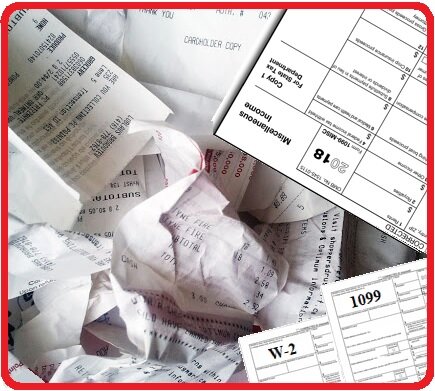Tax Season is Rapidly Approaching: Are You Ready for This?
/
With less than nine weeks until the individual tax return filing deadline this year, are you (and your records) ready to meet with your tax preparer?
Are your receipts and records (A) carefully organized, or (B) stuffed in a shoebox or grocery bag? If your record-keeping system falls closer to the second method, you probably already realize that this can cost you extra time and money, but did you know it could also result in inaccuracies or omissions on your personal return?
Here are a few steps that can go a long way toward helping your tax preparer to maximize the available tax benefits for you.
1. Organize your records.
Don’t just hand over a jumble of receipts, credit card slips and other paperwork. Assemble your records logically beforehand, and provide whatever information you can digitally. Arrange a phone call or face-to-face meeting with your accountant to discuss any questions or particular concerns you have before your return is prepared.
2. Don’t make assumptions.
Your tax preparer knows you, but don’t assume they recall all of your particular tax circumstances. Give him/her a quick reminder if you have an unusual situation. Again, a scheduled phone call or face-to-face meeting is best.
3. Report any and all securities transactions.
This is vital information your tax preparer will need in order to complete your return. Sometimes, a few trades might “fall between the cracks,” especially if you have multiple transactions involving mutual fund shares. Be sure to provide your tax preparer with a paper or digital copy of ALL the 1099s you receive. If you receive corrected/amended 1099s after turning over your tax records, advise your tax preparer as soon as possible.
4. Support your basis adjustments.
If you sold securities (stocks, bonds, etc.) in 2019, you owe tax on the difference between the sales price and your basis cost. Make sure you provide any documentation needed for adjusting your basis. Otherwise, you could overpay your tax bill. If you don’t account for taxes previously paid on mutual fund distributions (or dividends/capital gains) amounts, you’re paying the IRS twice on the same gains or dividends.
5. Combine business with personal.
If you own a pass-through entity (such as a partnership or S-Corporation) or have other business interests, don’t treat your personal tax return as completely separate. We suggest you use the same tax preparer (or firm) to handle both your business and personal returns so that nothing is overlooked.
If you have any questions, or if we can help you with filing your tax return, give us a call at 251-476-7685.
Remember:
The due date for filing 2019 returns for calendar-year corporations is March 16, 2020, while the deadline for filing individual returns is April 15, 2020.


